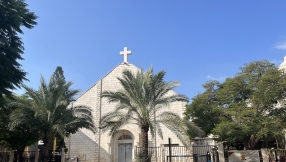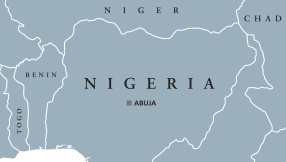Russia sends extra troops to Georgian rebel region
Russia announced this week it was deploying hundreds of additional peacekeeping troops to the tiny sliver of land of the Black Sea to counter what it said were Georgian plans for an attack on Moscow-backed separatists in the region.
Georgia summoned Russia's ambassador to protest against the deployment and said it had raised tensions in the region, where separatists fought a war against Georgian forces in the 1990s.
Russia's defence ministry said the contingent would remain within the 3,000 limit allowed under a United Nations-brokered ceasefire agreement signed in 1994.
Russian state television broadcast footage of a column of Russian army trucks and armoured vehicles driving through Sukhumi, Abkhazia's main city.
"The contingent is completing the concentration of units in their deployment locations," Russia's RIA news agency quoted the defence ministry as saying in a statement.
"The Russian peacekeepers have begun equipping arms stores, vehicle parks and field kitchens. Operations are under way to guard the deployment points and fit out command points and communications systems."
Diplomats have said Russia is sending about 1,200 extra troops to the region, though officials in Moscow have not given a figure for the scale of the re-enforcement.
"We are extremely concerned with Russia's decision to increase its military presence in Abkhazia," David Bakradze, a Georgian presidential special envoy, told journalists in Tbilisi.
"Under international law, the deployment of any military force without the consent of the sovereign country is clearly defined as an act of aggression. Therefore what we face today is an act of Russian military aggression in Abkhazia."
TENSIONS
Western diplomats say Moscow's recent steps have escalated tensions in the volatile region and say it would now take only a small spark to ignite a new round of fighting. The Caucasus region is a key transit route for energy supplies to the West.
U.S. Secretary of State Condoleezza Rice said the United States was "very concerned" about Russia's deployment and said she would raise the issue when she meets Russian Foreign Minister Sergei Lavrov in London on Friday.
"It is extremely important that Russia respect the territorial integrity and sovereignty of Georgia. Abkhazia and South Ossetia are integral parts of Georgia. They are not lands that are somehow disconnected from the Georgian state," Rice told reporters as she flew to London.
"I have talked to both Georgians and Russians to say let's not let any of this get out of hand," she added.
A semi-tropical strip of land on the Black Sea coast, Abkhazia used to be the playground of the Soviet elite. It was left devastated by the fighting between separatist forces and Georgian troops during the 1990s.
It is recognised internationally as part of Georgia but has run its own affairs, with support from neighbouring Russia, since the fighting ended.
Ex-Soviet Georgia, which has angered Moscow by seeking NATO membership and is a vital energy transit route, says the Russian peacekeepers side with the separatists and is lobbying for them to be replaced with a multinational force.
It has denied any plans to attack Abkhazia. Russian generals say their peacekeepers prevent an ethnic bloodbath in the region.
The deployment followed an announcement by Moscow that it was intensifying ties with the separatists and allegations from Tbilisi that Russia had shot down a Georgian spy drone. Moscow denied the allegation.
Most of Abkhazia's population, who are ethnically distinct from Georgians, say they were forcibly absorbed into Georgia under Soviet rule and want to exercise their right to self-determination.
Georgia argues that the majority of Abkhazia's pre-war population want to remain part of Georgia, but they were forced to flee and have since been living as refugees.













